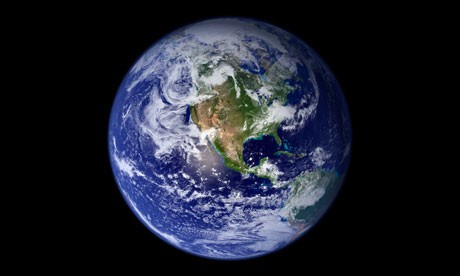The "Anthropocene" has been declared as the time for the new age man, according to a finding a new geological epoch.
Recent global environmental changes suggest that the earth may have entered a new geological period i.e. Anthropocene. Because human activities have also grown to become significant geological forces, for instance through deforestation and fossil fuel burning, it is justified to assign the term Anthropocene to the current geological epoch.
Though first of all, one should know what Anthropocene means.
Coined by Paul Crutzen and Eugene Stoermer in 2000, Anthropocene denotes the present time interval, in which many geologically significant conditions and processes are profoundly altered by human activities, according to the Working Group.
The initial domestication of plants and animals, and the development of agricultural economies are identified as marking the beginning of the Anthropocene epoch. Since then, human activities like colonization, urbanization and industrialization led to many environmental changes; these include one of the major concern of the recent times i.e. global warming which has dramatically altered atmosphere of the Earth.
These changes altogether prodded the start of this new phase. A recent paper published by co-authors Dr. Simon Lewis and Prof. Mark Maslin of University College London profound many such evidences and quoted theories to the study of this new geological epoch, which suggests that the exact date from where the "Anthropocene" starts from 1610.
Though a number of different starting dates for the Anthropocene epoch have been proposed earlier also reflecting different perspectives regarding when human societies first began to play a significant role in shaping the Earth's ecosystems.
Geologists are also debating on the "golden spike" theory, which has been further pursued by Prof Mark Maslin as he said: "We look for these golden spikes - a real point in time when you can show in a record when the whole Earth has changed."
From all the studies till date, two such golden spikes which marked the start of the Anthropocene in 1610 and another could be in 1964, when when the nuclear tests came to an end after a ban came into force, have been compiled and reported by BBC News while interviewing with Dr. Simon Lewis and Prof. Mark Maslin.
Dr. Jan Zalasiewicz, who chairs the Anthropocene Working Group, further interpreting on the findings said "It adds positively to the overall debate on the Anthropocene, and to the growing number of suggestions about where it should start." He told BBC News that the group would certainly discuss the ideas from the study.
Since the transition from the Pleistocene-Holocene phase, the Anthropocene could be considered as being the most debated subject among the researchers.
Many Scientists believe that the collision between the Old and New Worlds led to the start of the 'Anthropocene,' also that the arrival of Europeans in America had an unparalleled impact on the earth, which paved the way for a new era. And other researchers say that the industrial revolution or the first nuclear tests are solely responsible for the beginning of this new epoch.
The Anthropocene Working Group is currently reviewing all the evidences and will announce a favorable start date for this new geological time period next year.



























